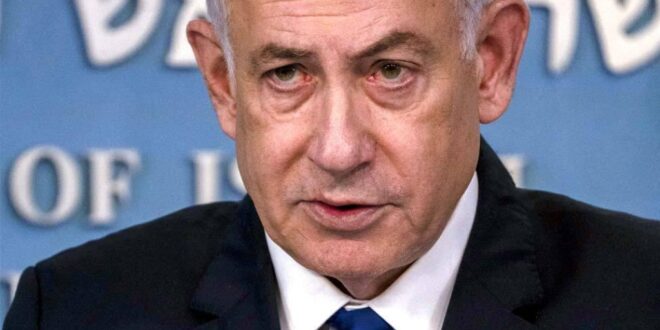Israel has been gripped by massive protests after the bodies of six hostages, abducted during Hamas’ terrorist attack on October 7 last year, were retrieved from the Gaza Strip the day before yesterday. Protesters marched with empty coffins, symbolizing the hostages killed by Hamas.
“The burden Netanyahu carries is much greater,” they stated. The hostages, as a reminder, were killed shortly before Israeli forces reached them, according to the military’s statement.
He has survived mass protests before, will he this time?
“The fact that they were alive and were killed just before they were supposed to be rescued – that’s a turning point for many who now realize that if they stay at home, they won’t achieve anything,” said Anna Rubin, who joined the protests in Tel Aviv.
Hundreds of thousands of people have taken to the streets in massive protests. Many believe that the large gatherings could represent a turning point, but Netanyahu has survived months of street protests before. His strategy has mostly been to ignore the demands of the protesters. But the question is whether that will work for him this time.
This time, he is not only fighting against his usual adversaries, the liberal left in the country, but he is in a fight to the death with Hamas leader Yahya Sinwar, who has clearly shown he is willing to use unimaginable brutality to get what he wants.
Sinwar exploits every weakness of Netanyahu that he can manipulate, and currently, it is public opinion – with the anniversary of the terrorist attack approaching and still 101 hostages held in Gaza, 35 of whom are feared dead.
Netanyahu defied everyone demanding concessions at the conference
Netanyahu and the far-right nationalist members of his cabinet are working to suppress legal protests and strikes through court orders. The one-day general strike was very uneven, even in Tel Aviv. Shops and restaurants in the city center were mostly open. “I disagree with the decision; we should have closed,” said one employee of a local café.
At last night’s press conference, Netanyahu defied everyone demanding more concessions from Israel in the negotiations. “These murderers executed six of our hostages, shot them in the back of the head. And now, after this, we are being asked to show seriousness? We are being asked to make concessions?” said Netanyahu.
He stated that no one serious about achieving peace and freeing hostages, including U.S. President Joe Biden, would ask him to make more concessions. As a reminder, Biden had previously said he thought Netanyahu was not doing enough to secure a ceasefire agreement.
A key demand from Hamas is that Israel withdraw all its forces from the strip of land along the border with Egypt, known as the Philadelphia Corridor. Israeli security chiefs, including Defense Minister Yoav Gallant, are publicly pressuring the government for compromises.
The most dangerous moment in previous Israeli mass protests, sparked by Netanyahu’s plans for judicial reform, was when he attempted to dismiss Gallant. He was later forced to reinstate him.
If he tries to do that again, argues political analyst Tamar Hermann from the Israeli Democracy Institute, it could be a real turning point for the protests.
Netanyahu, protected by a parliamentary majority, believes he can avoid the demands of the protesters, but ignoring the demands of his own defense minister and the U.S. president might be more challenging.
 Eurasia Press & News
Eurasia Press & News




